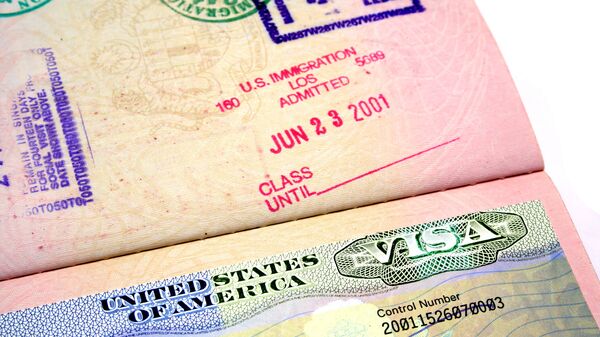Sent to all US diplomatic posts on Wednesday, the cable summarizes the new standards established under President Donald Trump’s revised March 6 executive order that enforces a travel ban on Iran, Libya, Somalia, Sudan, Syria and Yemen, six predominantly Muslim countries.
The cable details that the US will now require all countries to issue, or at least have plans to implement, electronic passports, and to regularly report any lost or stolen passports to INTERPOL.
Also noted is Washington’s request for biometric and biographic details along with any data foreign officials have on persons it believes are either linked to terrorist groups or have a criminal background.
"This is the first time that the US government is setting standards for the information that is required from all countries specifically in support of immigration and traveler vetting," states the cable.
While the new standards demand countries work quickly, the cable notes the US will assist struggling nations in coming up with a plan to meet the new protocols.
The latest vetting update comes amid the Trump administration’s particular approach to better protect the "Land of the Free" from any future terrorist attacks.
Trump administration vetting tactics have also included asking applicants for their social media history along with a three-page supplemental questionnaire, which required persons to note their travel and employment history for the past 15 years, residential addresses and names of all their spouses or partners, living or dead.
According to the Washington Post, the extensive questions are intended to single out applicants that have spent time in areas controlled by terrorist groups like Daesh.
Speaking to Reuters under condition of anonymity, a State Department official emphasized the agency’s openness to “review and improve” their procedures in order to strengthen US’ national security.





